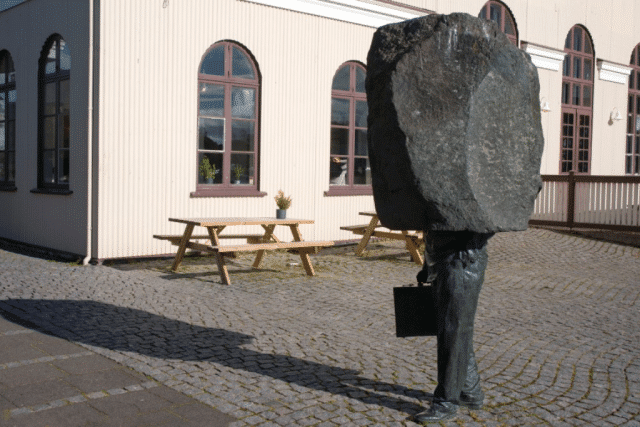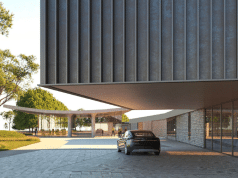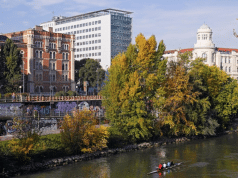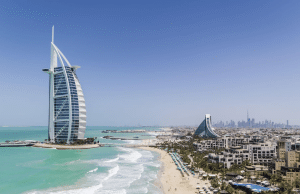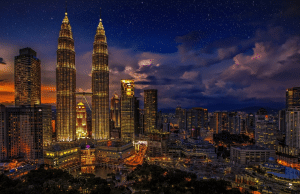Dante's fifth circle of hell

How to spot a bureaucrat?
No, it cannot be done!
A bureaucrat’s most beloved word is NO. If you do nothing, the possibility of problems occurring is near zero. In the dynamic business of event organising, such rigidity is impossible to comprehend.
Pay or leave!
A bureaucrat is obsessed with contracts and invoices – they represent their lifeblood. They are more focused on contracts than fostering respectful and kind relationships with their clients. A bureaucrat will enrich a contract with additional clauses at the last minute whenever possible.
Take it or leave it!
A bureaucrat loves to include vague and undiscussed services in the contract, which sounds highly knowledgeable. One example is the cost of manipulation, which shocks the client. Upon closer inspection, though, it is revealed these are the costs of transporting equipment. We do feel manipulated!
Don’t be wise, and manage waste instead!
A bureaucrat is a master of inventing a myriad of taxes. For instance, a bureaucrat will gladly include an ecological tax that supposedly regulates waste recycling. Although no law exists in this segment, the ecological tax sounds justified. What is the legal basis for charging an ecological tax again?
That same week, I analysed the results of a survey conducted among select Slovenian event organisers in February. I can now say that the survey was conducted for a potential investor who wished to build new congress capacities in Ljubljana. The results are fascinating, and I can share them publicly, as the investor unfortunately did not decide on an investment at the end. It seems nothing will change, to the delight of bureaucrats in our industry.
The most prominent Slovenian event organisers were brutally honest about Slovenian venues in the survey. In agreement with the client who ordered the survey, we will share the stark results with venues in Ljubljana in the sincere hope that they improve their services. A big thanks to the client for deciding to conduct the survey!
The organisers who partook in the survey stated they were most bothered by the hauteur, unresponsiveness, and unadaptability of venues. Moreover, they stressed that venues did not comply with agreements, wanted to negotiate or even manipulate the prices and offered no price transparency. They also emphasised the unimaginative approach of staff and further criticised their amateurism and belated responses.
In the research, event organisers outlined what they expect from venues. The respondents deem the following crucial:
- adaptability to the needs of clients
- professional staff
- kindness
- fast responses
- transparency
- expertise
- reliability
- operativeness
Sounds like the winning formula for a world-class staff employed at an event venue, right?

I let my thoughts ponder again as I mulled over the hidden potential of bureaucrat John Doe, who works at an event venue. Who or what guides their actions? What fulfils them? They may be a keen photographer, a master of scenarios, a talented producer, a musician ne plus ultra, or a creative mind from head to toe. Will that bureaucrat reach their potential in an industry that is undoubtedly creative? The meetings industry is ideal for bureaucrats in pursuit of changing their dull lives, as it sells unforgettable experiences and creates memorable events. Our events can even change society, cities, economy, science and culture.
My vexing experiences with bureaucrats are not singular. Bureaucratic and technocratic systems are in eternal conflict with creative minds and institutions that lead the meetings industry. It seems a bureaucrat’s life aim is to resent people who created their jobs in the first place by throwing them under the bus. Luckily, bureaucrats give us, who remain creative and ardent advocates of creativity and innovation, yet another reason to be better and more successful. We will never run out of ideas and venues where we host our events. Perhaps that is why the most searched word on Kongres Magazine’s website is “special venues”. There are 79 such venues in Ljubljana and its surroundings. They represent an integral aspect of a destination’s competitiveness and an alternative for us, who do not bow before monopolists who charge ridiculous amounts based on square metres per surface. There is a creative, alternative solution for every event. Rent a city!


